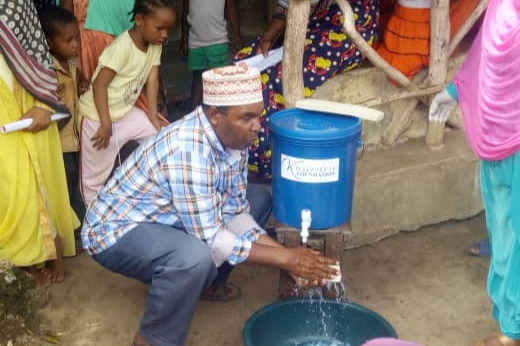VIJIJI 8 PEMBA WALIA NA ZAWA
Na Mwandishi Wetu, Pemba
Vijiji vinane Kisiwani Pemba vimekosa huduma ya maji safi na salama huku wakiilalamilia Mamlaka ya Maji Zanzibar kushindwa kutatua tatizo la maji katika Vijiji vyao.
Vijiji vikivyokosa maji ni katika Wilaya ya Micheweni Mkoa Kaskazini Pemba.
Wakizungumza kwa nyakato tofauti, wananchi wamesema huduma ya maji si ya uhakika, ni ya kubahatisha hali inayowafanya kupata usumbufu.
Zaidi ya wakaazi 6,000 katika Vijiji vya Kichekwani, Nduaga, Tundumwe, Mkunguni, Msasani na Momogu hawana maji safi na salama.

Wakaazi hao wamesema wanalazimika kununua maji ambayo wanayatumia kwa ajili ya kupikia na kunywa.
Wakaazi hao wanatumia maji ya bahari kwa ajili ya kukoshea vyombo na shughuli nyengine.
Kurata Bakar Said amesema huduma ya maji ya ZAWA imekuwa adimu na hawajui lini wataondokana na dhiki ya maji.
Fatma Mohamed Awadhi amesema kuwa maji ya ZAWA yamekuwa tunu kwao huku mifereji yao imebakia kuwa pambo ndani ya nyumba zao.
Sheha wa Shehia ya Shumba Mjini, Rahila Ramadhan Juma amesema amesema malalamiko ya wananchi ni mengi kuhusu ukosefu wa huduma ya maji.
” Kwa hakika, huduma ya maji ya ZAWA katika Shehia yangu ni tatizo sugu, wapo wananchi wananunua maji, wasiokuwa na uwezo wanatumia maji ya bahari” Alisema Sheha Rahila.
Tanzania, Zanzibar, Tatizo la Maji Kisiwani Pemba
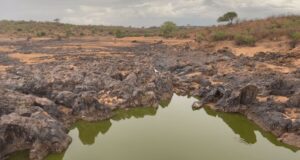
Leaders in Tanzania linked to destruction of the environment
The Tanzanian government has said that there are some leaders in the country for their personal interests who are contributing to the destruction of the environment including water sources and causing rivers to dry up. 12 families of leaders including ministers, politicians and judges are accused of being involved in the destruction of the water sources of the Ruaha Mkumu River.Continue Reading

VP told of 12 powerful families destroying Tanzania water ecosystem
Twelve “powerful’ families have been put in the spotlight to Tanzania Vice President, Dr Philip Mpango for allegedly owning a ranch in Usangu that is blocking the Ihefu Valley, consequently limiting water supply to the Great Ruaha RiverContinue Reading
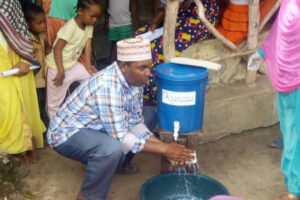
Villagers on Pemba Island lack clean sanitized water
Eight villages on Pemba Island have lacked clean and safe water service while complaining to the Zanzibar Water Authority for failing to solve the water problem in their villages.Continue Reading

Vijiji vinane Kisiwani Pemba vimekosa huduma ya maji
Vijiji vinane Kisiwani Pemba vimekosa huduma ya maji safi na salama huku wakiilalamilia Mamlaka ya Maji Zanzibar kushindwa kutatua tatizo la maji katika Vijiji vyao.Continue Reading
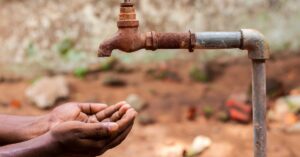
Water Crisis in Tanzania – Time for Technology and Innovation Solutions
During the COP27 summit in Egypt, the city of Dar es Salaam and other parts of Tanzania face severe water shortages that were brought on by drought.Continue Reading
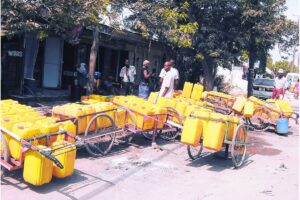
Tanzania: Empty water taps for weeks wake-up call
Tanzania: Empty water taps for weeks wake-up call. At least for regulated bottled water businesses, we are assured of safety. But for the water from dubious sources, including those close to sewers, there may be a spike of diseases like cholera, and diarrhea, among others.Continue Reading
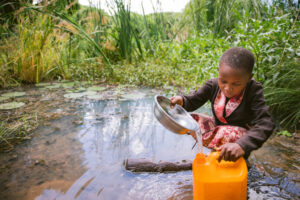
Protecting Water Sources – Tanzania State Directives
Tanzania Water Crisis: VICE-PRESIDENT Dr Philip Mpango has directed Regional Commissioners to supervise the countrywide campaign of planting water friendly trees along water sources, while ordering people who have built houses on mountainous sources of water to immediately vacate in order to protect the areas.Continue Reading
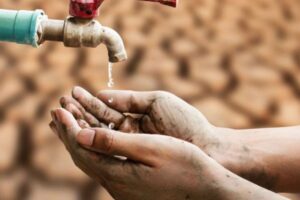
Dereliction of duty and endless water crises in Dar es Salaam Tanzania
Once Dar es Salaam residents in Tanzania enjoyed reliable water supply by the authorities, but those days are long gone. Why?Continue Reading
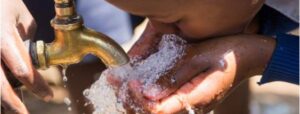
MGAO WA MAJI WAWATESA WAZANZIBARI
Wananchi wengi hasa katika maeneo ya Mjini Unguja, wanalalamikia ukosefu wa maji safi na salama huku Mamlaka ya Maji Zanzibar ikikabiliwa na changamoto ya ukosefu wa ujuzi na wataalam katika masuala ya uandisi wa Maji na fani nyengine.Continue Reading
Share this news
This Year’s Most Read News Stories

Tanzania Confirms Second Marburg Outbreak After WHO Chief Visit
Dar es Salaam — Tanzania’s President Samia Suluhu Hassan has declared an outbreak of Marburg virus, confirming a single case in the northwestern region of Kagera after a meeting with WHO director-general Tedros Adhanom Ghebreyesus.
The confirmation follows days of speculation about a possible outbreak in the region, after the WHO reported a number of deaths suspected to be linked to the highly infectious disease.
While Tanzania’s Ministry of Health declared last week that all suspected cases had tested negative for Marburg, the WHO called for additional testing at international reference laboratories.
“We never know when an outbreak might occur in a neighbouring nation. So we ensure infection prevention control assessments at every point of care as routine as a morning greeting at our workplaces.”Amelia Clemence, public health researcher
Subsequent laboratory tests conducted at Kagera’s Kabaile Mobile Laboratory and confirmed in Dar es Salaam identified one positive case, while 25 other suspected cases tested negative, the president told a press conference in Dodoma, in the east of the country today (Monday).
“The epicentre has now shifted to Biharamulo district of Kagera,” she told the press conference, distinguishing this outbreak from the previous one centred in Bukoba district.
Tedros said the WHO would release US$3 million from its emergencies contingency fund to support efforts to contain the outbreak.
Health authorities stepped up surveillance and deployed emergency response teams after the WHO raised the alarm about nine suspected cases in the region, including eight deaths.
The suspected cases displayed symptoms consistent with Marburg infection, including headache, high fever, diarrhoea, and haemorrhagic complications, according to the WHO’s alert to member countries on 14 January. The organisation noted a case fatality rate of 89 per cent among the suspected cases.
“We appreciate the swift attention accorded by the WHO,” Hassan said.
She said her administration immediately investigated the WHO’s alert.
“The government took several measures, including the investigation of suspected individuals and the deployment of emergency response teams,” she added.
Cross-border transmission
The emergence of this case in a region that experienced Tanzania’s first-ever Marburg outbreak in March 2023 has raised concerns about cross-border transmission, particularly following Rwanda’s recent outbreak that infected 66 people and killed 15 before being declared over in December 2024.
The situation is particularly critical given Kagera’s position as a transport hub connecting four East African nations.
Amelia Clemence, a public health researcher working in the region, says constant vigilance is required.
“We never know when an outbreak might occur in a neighbouring nation. So we ensure infection prevention control assessments at every point of care as routine as a morning greeting at our workplaces.”
The Kagera region’s ecosystem, home to fruit bats that serve as natural reservoirs for the Marburg virus, adds another layer of complexity to disease surveillance efforts.
The virus, closely related to Ebola, spreads through contact with bodily fluids and can cause severe haemorrhagic fever.
Transparency urged
Elizabeth Sanga, shadow minister of health for Tanzania’s ACT Wazalendo opposition party, says greater transparency would help guide public health measures.

Sign up for free AllAfrica Newsletters
Get the latest in African news delivered straight to your inbox
“This could have helped to guide those who are traveling to the affected region to be more vigilant and prevent the risk of further spread,” she said.
WHO regional director for Africa Matshidiso Moeti says early notification of investigation outcomes is important.
“We stand ready to support the government in its efforts to investigate and ensure that measures are in place for an effective and rapid response,” she said, noting that existing national capacities built from previous health emergencies could be quickly mobilised.
The situation coincides with leadership changes in Tanzania’s Ministry of Health, with both the chief medical officer and permanent secretary being replaced.
This piece was produced by SciDev.Net’s Sub-Saharan Africa English desk.
Source: allafrica.com

Britam half-year net profit hits Sh2bn on higher investment income
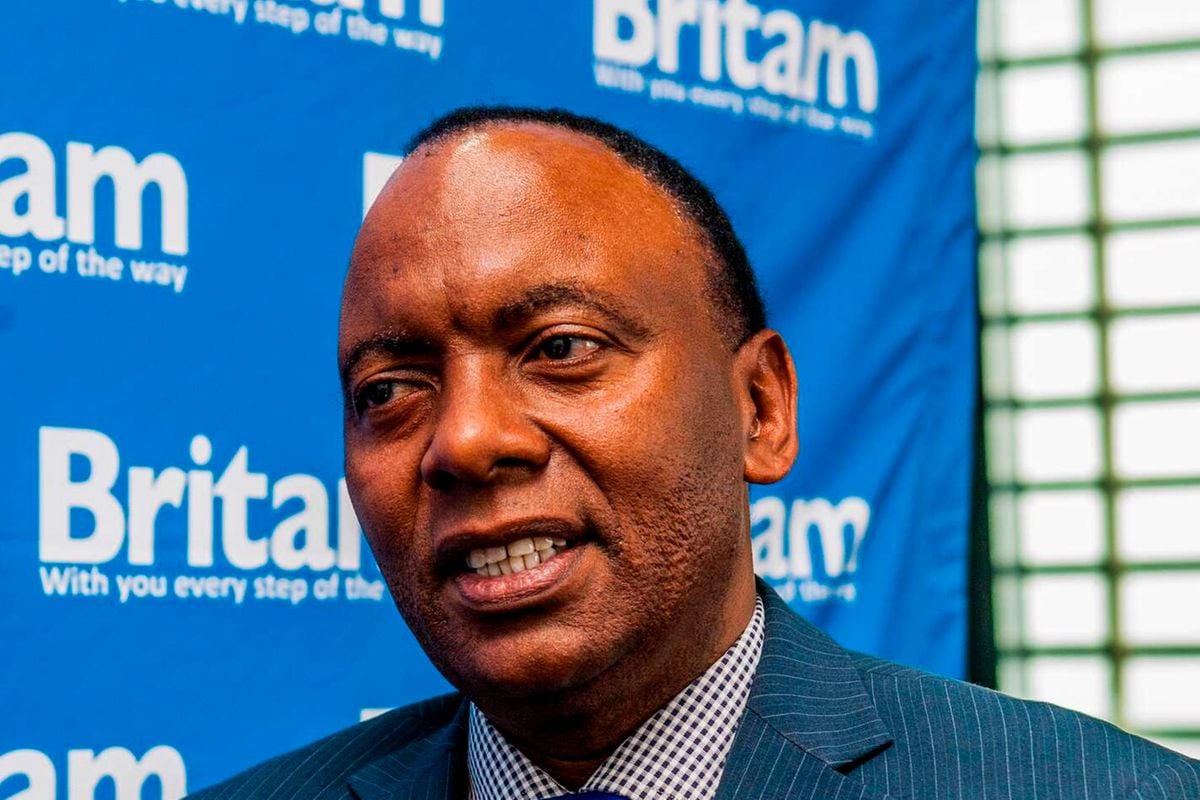
Insurer and financial services provider Britam posted a 22.5 percent jump in net earnings for the half-year ended June 2024, to Sh2 billion, buoyed by increased investment income.
The rise in half-year net profit from Sh1.64 billion posted in a similar period last year came on the back of net investment income rising 2.5 times to Sh13.27 billion from Sh5.3 billion.
“We are confident in the growth and performance trend that Britam has achieved, supported by its subsidiaries in Kenya and the region. Our business is expanding its revenue base while effectively managing costs,” Britam Chief Executive Officer Tom Gitogo said.
“Our customer-centric approach is fueling growth in our customer base and product uptake, particularly through micro-insurance, partnerships, and digital channels.”
The investment income growth was fueled by interest and dividend income rising 34 percent to Sh9.1 billion, which the insurer attributed to growth in revenue and the gains from the realignment of the group’s investment portfolio.
Britam also booked a Sh3.79 billion gain on financial assets at a fair value, compared with a Sh1.8 billion loss posted in a similar period last year.
The increased investment income helped offset the 12.7 percent decline in net insurance service result to Sh2.13 billion in the wake of claims paid out rising at a faster pace than that of premiums received.
Britam said insurance revenue, which is money from written premiums, increased to Sh17.8 billion from Sh16.6 billion, primarily driven by growth in the Kenya insurance business and regional general insurance businesses, which contributed 30 percent of the revenue.
The group has a presence in seven countries in Africa namely Kenya, Uganda, Tanzania, Rwanda, South Sudan, Mozambique, and Malawi.
Britam’s insurance service expense hit Sh13.6 billion from Sh11.3 billion, while net insurance finance expenses rose 2.6 times to Sh12.3 billion during the same period.
“Net insurance finance expenses increased mainly due to growth in interest cost for the deposit administration business driven by better investment performance. This has also been impacted by a decline in the yield curve, which has led to an increase in the insurance contract liabilities. The increase has been offset by a matching increase in fair value gain on assets,” said Britam.
Britam’s growth in profit is in line with that of other Nairobi Securities Exchange-listed insurers, which have seen a rise in profits.
Jubilee Holdings net profit in the six months increased by 22.7 percent to Sh2.5 billion on increased income from insurance, helping the insurer maintain Sh2 per share interim dividend.
CIC Insurance Group posted a 0.64 percent rise in net profit to Sh709.99 million in the same period as net earnings of Liberty Kenya nearly tripled to Sh632 million from Sh213 million, while Sanlam Kenya emerged from a loss to post a Sh282.2 million net profit.

Tanzanian insurance firms upbeat after first quarter business growth
Total gross written premiums for the insurance industry have increased by 13.68 percent in the first quarter of 2024, with small and medium-sized companies showing higher growthContinue Reading

